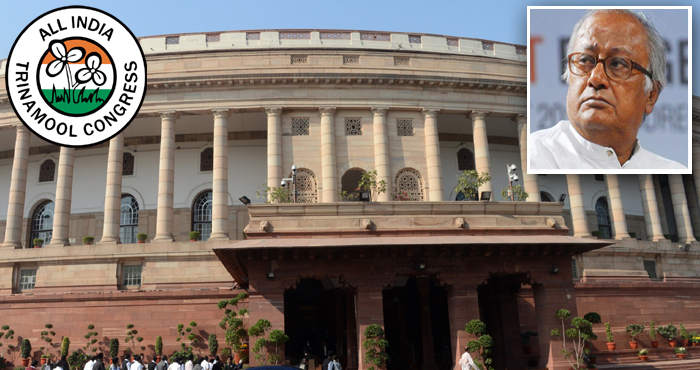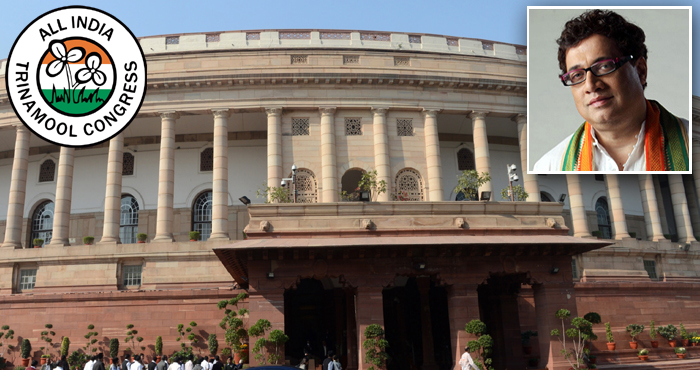FULL TRANSCRIPT
Sir, I rise to speak on the (point) 193 discussion in the name of Khargeji and myself. Let me state at the outset that I shall not be dealing with mob violence in general but I shall deal with mob violence related to bovine issue, that is cow-related mob violence.
Sir, main yeh debate ko, us aur them, BJP and opposition, yeh debate nahi banana chahta hoon, nahi main yeh debate ko Hindu vs Muslim debate banana chahta hoon. Mera yaad hai, Nazrul Islam ka ek kavita jahan unhone bola, “Hindu na ora Muslim, oi jiggashe kon jon, kandari bolo dubiche manush santan mormar”.(Bengali) Kaun poochta hai woh Hindu ya Muslim hai? Woh naiyya bolo ki doob raha hai insaan jo humare maa ki bete hain. Main navik/naiyya, toh main yeh kehna chahta hoon ki yeh jo violence ho raha hai, iske barein mein log keh sakte hai kitna hua, kitne log mare, kaun mare, yeh sawaal uthana nahi hai. I am reminded of a poem by John Dunn quoted in Hemingway’s ‘For Whom the Bell Tolls’. It says, “Every man’s death diminishes me, for I am involved in mankind. Therefore ask me not for whom the bell tolls, it tolls for thee”. Har insaan marta hai toh main chota hota hoon, aur aaj isi spirit mein yeh charcha hona chahiye, main yeh samajhta hoon. Lekin, lekin, jab hum charcha mein bhaag le rahein hai, kuch tattha, kuch facts aapke samne lana chahta hoon.
(Interjection: Bangal ke bare mein boliye…)
Bangal ke barein mein bhi bolenge, Dilli ke barein mein bhi bolenge, kaise aap log har gaye the dilli mein, Kejriwal ke paas.
Sir, one database, one magazine prepared a database from 2010 to 2017, how many bovine issue related incidents there were. They calculated that from 2010-2017, there were 63 incidents. Sir, I don’t want to bring Hindu and Muslims, but 97 per cent of these incidents between 2010 and 2017 came after Narendra Modi came to power in 2014, 97 percent of these incidents. Sir, of the 28 people who were killed in this bovine issue related incident, 86 per cent were Muslims. Now I want to ask the members of the ruling party, woh har dum kehte hain, unke Sabhapati kehte hain hum birodhi mukt Bharat karenge, Congress mukt Bharat karenge… Main puchna chahata hu kya aap log Muslim mukt Bharat karne chahate hain? Toh aap kya chahate hain, aap batao. Main pooch raha hoon. Sir, main poochna chahata hoon yeh Muslim ko rahene ki adhikar kya nahin hai? There are death of 28 people in this related incidents, out of them 24 were Muslims. Now, as I told you earlier, I don’t want to relate to general mob violence. Kabhi traffic accident hota hain, wohan bhi mob violence hota hai. It takes place. Sir, 24 were Muslims. Now I want to ask and 52 per cent of these attacks were in BJP related States. 2010-17, 97 per cent attacks were after BJP came to power and 52 per cent attacks were in BJP-ruled States. Main kise ka naam nahi le raha hoon. I want to say that this cow related killings are all targeted killings. Professor Saugato Bose reminded me in the morning the USA, after the civil war, there was an organization called Ku Klux Klan. They used to make targeted killings of black people, of coloured people. Yeha jo ho raha hai targeted Muslim killing hota hai, bolta hai ki tum bhago, desh chod ke jao. Aur kaun kar raha hain yeh? Yeh kar raha hai, this is also from the statistics.
Sir, again I’m giving the statistics. In 23 attacks, the mobs are groups of people who belong to Hindu groups, such as the Vishwa Hindu Parishad, Bajrang Dal and local Gau Raksha Samiti. Yeh log kaun hai. Yeh log ruling party ka bandar hai, jo Bharat mein ladai chala raha hai. Ruling party ke bandar hai yeh log. Yehi log saara desh mein yeh kar raha … bandar hai. Achha mein bandar nahin boloonga. Bandar ko bandar nahin boloonga. Mein promise kar diya. Mein nahin boloonga. Mein hanuman ko hanuman nahin boloonga. Yeh bajrangbalee hai. Sir, yeh ruling party ke bajrangbalee hai.
Sir, the Honourable Minister (S.S. Ahluwalia) intervened. I only want to inform you that a missing diary has been lodged in Darjeeling police station against their missing MP. He is not to be seen in the Darjeeling Hills. So, let him not speak. Let him go to Darjeeling from where he is elected.
Sir, Mr Kharge has given in detail all the various incidents. He has mentioned 24th June, when a 15 year old poor boy, Junaid Khan, was murdered on a train in Ballabgarh, Haryana. He has mentioned the incident which took place on 1st April, 2017, when a man called Pehlu Khan, was murdered on the National Highway in Alwar district in Rajasthan. He has mentioned the incident in September 2015, when a man, Akhlaq, was beaten to death in UP’s Dadri village. Sir, somebody was mentioning about Bengal. Sir, I want to mention that very few cases of bovine related violence happened in Eastern States, including Bengal and Odisha.
Sir, things have happened there. Now, why this is not being controlled, you may wonder. It is not being controlled because the BJP top leaders were very shy of condemning these incidents. Sir, you would know that it took Haryana Chief Minister three days to condemn the killing of Junaid in Ballabgarh. It took the central leadership of BJP Ravi Shankar Prasad four days. Sir I did not relate what all Hukumdev Narayan Yadavji said because he is a confused man, a mixture of Ram Manohar Lohia and Deendayal Upadhyay. What will I talk about him. It took about six days for the Jharkhand CM to own up lapses for innocent young men being beaten to death. In his own state, 10 men are beaten to death. It took him six days to condemn that. It took Rajasthan Chief Minister one month to condemn the Alwal lynching, and the Prime Minister himself has so far only made two statements condemning Gau Rakshak. One in 2016 and recently on June 29, he made a statement in Sabarmati Ashram, where he condemned (violence in the name of) Gau Rakshak. It’s a good thing, but why did it take him so long? And you know, nobody trusts him when he condemns this, because on the same day when he condemned the killings in Sabarmati, the same day in Jharkhand, Alimuddin alias Asgar Ansari was beaten to death in Jharkhand’s Ramgar, suspected of carrying beef.
So the ruling party has always erred in not condemning this enough. And now the ruling party president is involved in saying so many lynchings have taken place during the UPA time. The question is not that of who’s time it is carried out, the question is whether the Governments are performing their duties, Sir, you know in UP, 10 such incidents have taken place. Six incidents in Gujarat and Rajasthan, all BJP ruled states. Sir, I have some concrete suggestions. Under CrPC and IPC, lynching is not defined. Under 223A of CrPC, you can say in mob killings people should be judged differently. I demand that a separate law, Sir, I suggest that just as after the Nirbhaya incident, just as a fresh law modifying the IPC was brought in this Parliament, I demand that a Manab Suraksha Kanoon for preventing lynching should be brought by the Government. Because lynchings are primitive, lynchings are feudal, just to think that a man is crying for mercy and he is beaten mercilessly by some people who are either accusing of smuggling cows or accusing of being child lifters. This cannot go on. Sir, the country is ashamed. Today people from all over the country have come out in demonstration in the big cities with the Not In My Name protest. Today, 114 Generals of the Army, they have issued a statement condemning this lynching. Sir, the country is changing. I do not know who will be in power tomorrow? But people in whose time human beings are beaten to death will not be pardoned in the annals of history.
With that Sir, I end my speech.


